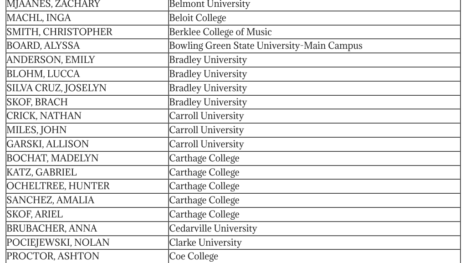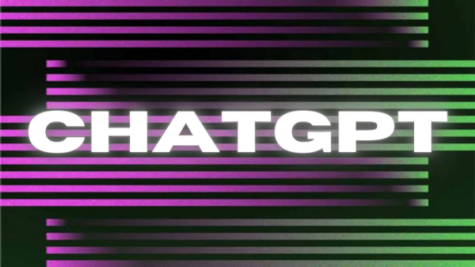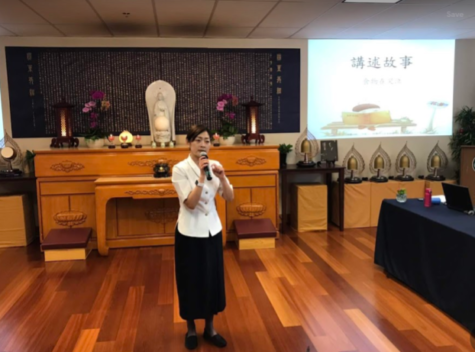To Lit or not to Lit? That’s the AP question
So, you’re thinking about signing up for AP Literature and Composition for next year. First, I’m proud of you. Second, you have no idea what you’re in for – or maybe you do.
You’ve probably heard horror stories from people who have taken AP Literature and Composition. Some of them are probably true, but don’t let them scare you off. Don’t get me wrong, AP Literature and Composition is a rigorous course that includes a lot of reading, but it’s also a great class to take.
Literature isn’t just something English teachers assign to their students to torture them (though it may certainly feel like it). Literature allows people to view the world from a different perspective and allows them to gain a deeper understanding of culture and history.
Reading classic literature is much different than reading other styles of books. It is often more complex and demands the reader to think carefully about what they are reading. There is always something more to learn from reading a classic literature book because it deals with universal themes.
“Literature requires a switch of mindset and thinking,” AP Lit teacher Mrs. Vandemoortel said. “[Ask yourself] what questions does the author want me to ask instead of what answers does that author give me.”
“Reading literature allows us to learn not only about other people but also ourselves by paying attention to the reactions we have to the things we read,” Mrs. Vandemoortel said.
Books like The Great Gatsby or The Stranger have characters that are dynamic and complex. Take Nick, for example, our narrator from The Great Gatsby. His telling of the events forces you to decide whether or not to believe what he says, especially when he comments, “I am one of the few honest people I have ever known.” Mersault from The Stranger is isolated from the rest of the world because of his indifference.
Both characters seem simple on the surface and Nick can be easily written off as a liar and Mersault can be seen as a person who just doesn’t care about the world. However, it goes deeper than that, and with time and guidance, you’ll learn how to look for those things.
“There is a difference between understanding the characters and accepting them. You can seek to understand their motivations without agreeing with them. Authors often write characters they don’t necessarily agree with to acknowledge the viewpoints of others, and it adds conflict,” Mrs. Vandemoortel adds.
It can be really difficult to have empathy for the characters you’re reading about, especially if you have absolutely no idea what they’re going through. That’s completely okay. I had a really difficult time getting into Crime and Punishment, which explores the mind of a killer. I’ve only killed bugs, so I’d have no idea what the main character is experiencing.
“I hope that people are able to better understand those around them and develop empathy. I understand that it can be difficult to read a book about someone that is going through a different situation than you but I hope that students will learn to find elements of themselves in others,” Mrs. Vandemoortel said.
Seeing new perspectives is a great aspect of reading literature, but many of the books in the AP Literature and Composition curriculum aren’t very diverse. Many times you’ll be reading western culture-centered books.
If you’re going to take the course, I highly recommend you read some classic literature over the summer. I don’t mean read an entire library of books (that’s really not necessary), but I also don’t mean read just one book.
Now I get it, summer is supposed to be a break from classes and by all means, take a break from school and recharge. But, if you want to get ahead of the game, here’s a list of books that are commonly used on the AP Literature and Composition exam. The list is daunting yes, but helpful. Try to pick out a few that seem interesting! I’d recommend reading:
–The Catcher in the Rye by J. D. Salinger
–Frankenstein by Mary Shelley
–Invisible Man by Ralph Ellison
-The Jungle by Upton Sinclair
–Of Mice and Men by John Steinbeck
–The Secret Life of Bees by Sue Monk Kidd
While you read, try to ask yourself questions about what you’re reading. You may be tempted to speed-read through it and try to get it done as fast as you possibly can. Let me caution you: it may feel nice at the moment but you won’t remember anything, which means that you are wasting your time.
Find a place where you can focus without any distractions, and as AP Literature teacher Mrs. Vandemoortel likes to say, “read with pen in hand”. It may feel strange at first to be writing in a book, but think of annotations like a diary. It allows you to keep a record of things you notice while reading, or what you notice the second time through.
There is no secret formula to success in this class, but there are ways to make it more manageable. It can be really hard if you’re reading a book like Crime and Punishment that has a bunch of long Russian names and weighs a ton. It can be really easy to ‘fall asleep’ while reading it but it’s really important that you are paying attention to what’s happening. I get that it’s long but there are some things that you can learn.
I recommend reading a few paragraphs and then writing a few notes on a separate piece of paper about what you think happened. It may feel like a waste of time, but it will help you understand the book better as a whole.
Hopefully, you’ve had some experience with reading Shakespeare during your time here at Cary Grove. If you haven’t, have no fear! Sparknotes is a great resource to use if you’re confused about what’s happening while you’re reading.
“You are not going to understand every single line and that’s okay,” said Mrs. Vandemoortel. “This provides the opportunity to fill in what’s left unsaid and [creates] opportunities for great discussions.”
That advice will help you to get ready for the year, but what about the end of the year when you have to take the AP Lit test?
“Give yourself permission to think on your feet,” Mrs. Vandemoortel said. “Writing a timed essay is an entirely different way of thinking than writing when you have a much longer time frame. AP Literature gives students the opportunity to think for themselves, but [it also] forces them to be able to defend their argument and provide a line of reasoning.”
It does seem really daunting. As someone who took the AP Literature and Composition test last year, it is. I won’t lie to you, but if you’ve done a really good job of reading the books you’ve been assigned and have done your best on all of the in-class essays, you’ll be absolutely fine. As the date of the AP test approaches, you’ll have several practice essays and practice tests under your belt. You’ll do great!








